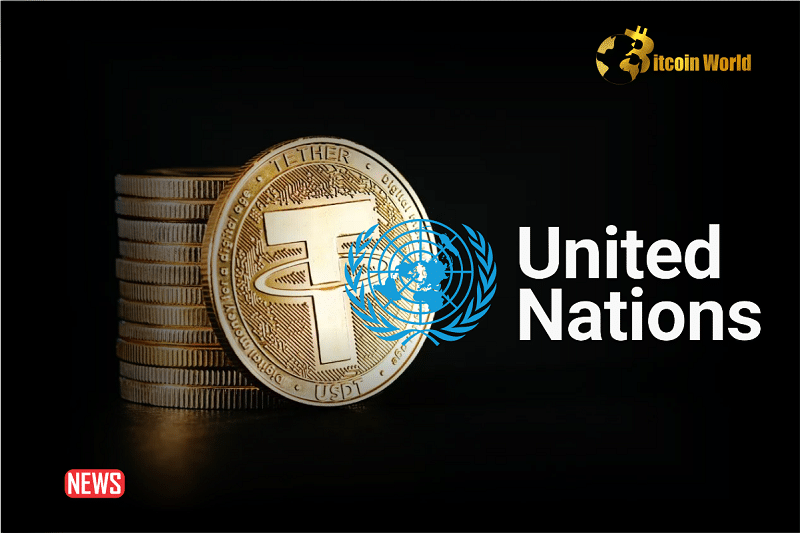Tether (USDT), a cornerstone of the crypto market, is once again under the microscope. A recent United Nations report has raised concerns about USDT’s potential involvement in illicit activities, particularly in Southeast Asia. This has sparked a debate about the role of stablecoins in the global financial landscape and the measures being taken to prevent their misuse. Let’s dive into the details.
Tether’s Response: Disappointment and Defense
Tether, the issuer of USDT, has voiced its disappointment with the UN report. They argue that the report unfairly emphasizes the alleged negative aspects of USDT while overlooking its positive contributions, especially in developing economies. Here’s a breakdown of Tether’s key points:
- Financial Inclusion: Tether contends that USDT provides crucial access to financial services in regions underserved by traditional banking.
- Collaboration with Law Enforcement: Tether highlights its active collaboration with global law enforcement agencies like the DOJ, FBI, and USSS.
- Superior Monitoring: Tether claims its monitoring capabilities surpass those of traditional banking systems, which have historically faced significant money laundering issues.
- Asset Freezing: Tether reports freezing over $300 million in assets in recent months to combat the criminal use of crypto.
Tether’s blog post further challenges the UN report, advocating for blockchain education and a more balanced perspective on the role of stablecoins.
The UN Report: Key Concerns
The UN Office for Drugs and Crime (UNODC) report specifically identifies USDT as a prominent tool for money laundering in Southeast Asia. The report highlights the increasing use of USDT transactions on the Tron blockchain. The core concerns are:
- Money Laundering: USDT’s ease of use and global accessibility make it attractive for illicit activities.
- Scams and Fraud: The report suggests USDT is being used in various scams and fraudulent schemes in the region.
- Tron Blockchain: The growing prevalence of USDT transactions on the Tron network raises additional concerns due to its speed and lower transaction costs.
See Also: United Nations Says Tether USDT Is A Prominent Choice For Fraud In Southeast Asia
The Bigger Picture: Stablecoins and Regulation
This situation underscores the ongoing debate surrounding stablecoins and the need for clear regulatory frameworks. Here are some key considerations:
- Regulation is Crucial: Clear regulations are needed to prevent the misuse of stablecoins while fostering innovation.
- Transparency is Key: Stablecoin issuers must be transparent about their reserves and compliance measures.
- Collaboration is Essential: Collaboration between regulators, law enforcement, and the crypto industry is vital to combat financial crime.
See Also: Is USDT Truly The Source Of Money Laundering And Scam In Southeast Asia
Moving Forward: A Call for Collaboration
Tether has called for a broader discussion with the UN, emphasizing the potential of blockchain technology to combat financial crime. The company expresses its willingness to collaborate on initiatives to improve understanding and implement modern strategies. The core of Tether’s argument is:
“We believe the UN could benefit from an expanded understanding of blockchain technology and the immense improvements it offers with respect to fighting financial crime. We encourage a proactive learning approach and believe it is vital for a more informed environment, and are happy to support the UN in gaining more understanding.”
Conclusion: Finding a Balance
The controversy surrounding Tether and the UN report highlights the complex challenges of regulating the crypto space. While concerns about illicit activities are valid, it’s also important to recognize the potential benefits of stablecoins and the efforts being made to ensure compliance. A balanced approach, involving collaboration, education, and clear regulations, is essential to harness the power of blockchain technology while mitigating its risks.
Disclaimer: The information provided is not trading advice, Bitcoinworld.co.in holds no liability for any investments made based on the information provided on this page. We strongly recommend independent research and/or consultation with a qualified professional before making any investment decisions.



